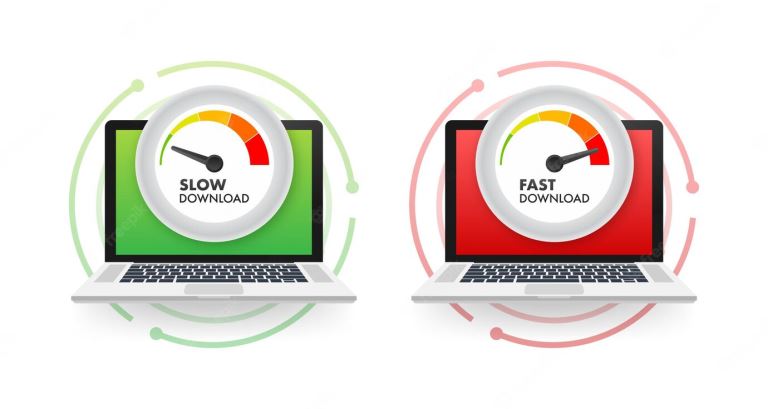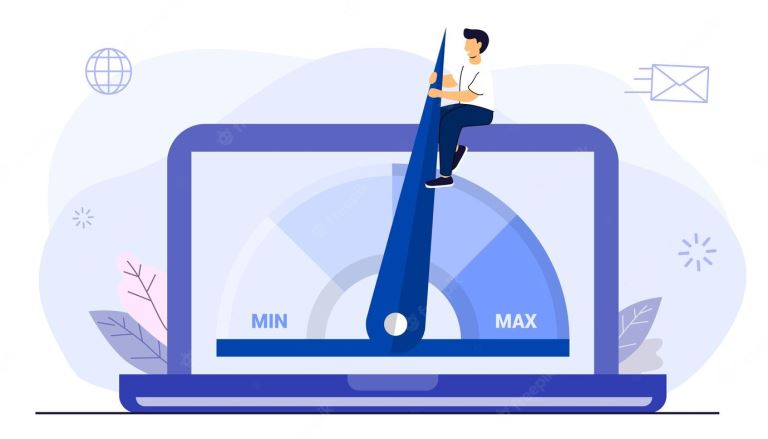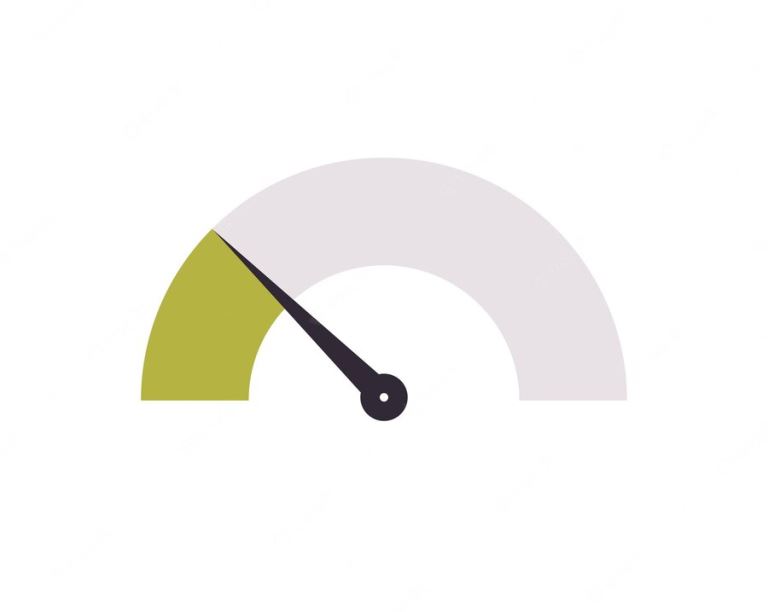What is a Good Internet Speed? What is Bad Internet Speed?
With the rising number of problems related to internet speed, you may wonder what exactly is a good internet speed, right? According to the FCC, anything above 25Mbps will be enough to support most of your online activity. Hence, it's considered a good internet speed, and less than that is considered a poor one. But, is it so?
The standard for good internet speed was created by the Federal Communications Commission far back in 2015. Back in those days, 25Mbps of download speed and 3Mpbs of upload speed were potent enough to support activities like streaming, web browsing, online gaming, or downloading music. However, the requirement for internet speed has changed a lot in the modern era. Now, a good internet speed is much higher than the standard 25Mbps. In fact, the average speed required in every house in the U.S is almost around 152Mbps with a 21Mbps upstream speed. Therefore, a minimum of 200Mbps should be considered a good internet speed according to our present requirements.
If you're still confused about how this speed is measured and what would be the recommended speed you should purchase for your home, keep on reading this guide further. We will discuss everything in detail.
What is a Good Internet Speed? What is Bad Internet Speed?
Internet speed is usually determined by how much data your internet connection is able to download per second. If the speed is falling into the Kbps range, then it should be considered a poor internet connection while Gbps fall into the ultra-fast range. However, while researching, you will mostly see Mbps speeds more than Gbps or Kbps. It's because Mbps speeds are more suited to how the internet is used.
Considering today's scenario, a download speed of over 200Mbps and an upload speed of over 20Mbps can be considered a fast internet connection. However, these speed recommendations are only for a single user. Therefore, there are a few things you must take note of while choosing an ideal internet speed for your home.
What Are The Factors To Consider To Have A Good Internet Speed?
Despite knowing the standard measurement of good internet speed and poor internet speed, it can be a bit tricky to find a suitable internet plan that offers you an optimal speed. While general internet activities such as streaming videos, listening to music, or watching Netflix may not be hampered due to an average internet speed, you will feel a lag while downloading large-sized files. So, a few factors should be considered to enjoy an uninterrupted connection. Let's take a look at the following factors below,
1. Get 2x of Your Requirements
Often, the internet service providers show up the speed lists according to a wired connection which is typically faster than a wireless one. However, in most of our houses, we use wireless devices for more convenience. So, you only get half of the speed advertised on the plan. If you choose only an average plan with a minimum speed limit, then there will be a lot of lagging in the future. It's recommended to get double what you really need. For example, if you need a 100Mbps of speed, get a 200Mbps line to avoid any interruptions.
2. Consider The Number of Devices
The number of devices connected to your router plays the most important role in deciding your internet speed. Most of these speed recommendations are meant for a single device, but every household has a lot of devices connected to their router that share the same bandwidth. For example, if you have a 100Mbps line and four people sharing the bandwidth, it means each people will get 25Mbps which is still fine for basic online activities. However, you must consider these numbers while choosing an internet plan for an uninterrupted connection.
3. Choose The Best ISP
Internet service providers play one of the most crucial roles while deciding how much speed you will enjoy while browsing. Sometimes, they don't offer the optimal speed as promised. So, it's important to conduct research on the best internet service providers in your locality before you choose one. These are the few things you must consider to enjoy optimal internet speed on your device.
What Type of Internet Connection Will Contribute to a Poor Speed?
Regardless of what you do to fix your poor internet connection, there are a few types of internet connection that will always provide you with a poor speed. This includes,
1. Dial-Up
In this modern era, if you're still using a dial-up connection that offers a speed of up to 56Kbps, then it's pretty certain that you will face a slowdown. This speed isn't even capable of conducting basic online activities like checking an email, loading a simple web page, etc. There's no way you can stream or download online games with a dial-up connection. Every single online work will take forever to be completed.
2. Fixed Wireless
Fixed wireless is one of the most popular solutions, especially in rural areas. Basically, this connection uses broadcast towers for transmitting and receiving internet signals. The speed may vary from 3 to 100 Mbps depending on the location and service provider. However, it tends to be slower than other internet connections. So, it won't be capable of providing you the ideal speed required to complete online activities in today's time.
3. Satellite
Satellite internet is not only slow but also it's expensive. Also, it often comes with low data caps. This means your download speed will be reduced once you hit a certain limit. Therefore, you won't be able to download any large-sized files with this connection type.
So, avoid these connection types while choosing your ISP. It's better to use either a wired or wireless connection for faster internet.
How to Troubleshoot a Poor Internet Connection
Sometimes, even when you're paying for a fast internet connection, your connection may slow down. It can happen due to a number of reasons but there are ways to improve your speed in this case. Let's take a look at how to troubleshoot a poor internet connection,
1. Consider restarting the router or your device. Sometimes, restarting the devices fix the bugs and set everything to normal.
2. Sometimes, routers get outdated after so many years of use and it may negatively impact the internet connection. So, consider a router replacement to fix the issue.
3. You can use an Ethernet cable to get a faster connection as the cable reduces the chances of any signal interference and creates a direct link.
4. If you're dealing with constant buffering and slowdowns, then you may need to boost the bandwidth. Ask your provider and get a faster package if available.
Regardless of the fixes, the first thing you should do is conduct a speed test to know the status of your present internet speed. Depending on that, you should try to improve it later on. There are various speed testing tools available for free. You can simply press the "go" button and check your connection status.
Conclusion
Poor internet can be a trouble to all. Especially, in today's time when most of our activities depend on a reliable internet connection, slowing down can hamper tremendously. This is why it's important to know what exactly is a fast internet connection and what considers poor internet. Understanding the differences will help you know whether you're dealing with a poor connection or not. We hope this guide has helped you understand the standard for good and poor internet speed. If yes, then don't forget to let us know your thoughts.













